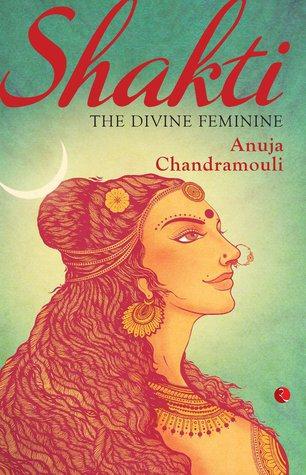 Goodreads blurb: Lose yourself in Maya, the divine game of the Goddess!
Goodreads blurb: Lose yourself in Maya, the divine game of the Goddess!
She is the Mother Goddess, Mahamaya the enchantress, the supreme consciousness, the pure source from which all creation emerges and to whom all must eventually return. As Usas, the enchanting goddess of the dawn, she is loved passionately and hated fiercely, leading to a horrific tragedy. As Durga, the invincible warrior, she defeats the savage Mahishasura, whom none of the male gods could vanquish. As Kali, the fearsome dark goddess, she delights in chaos. Yet she is also Shakti, beloved of all, who, when united with Shiva, restores balance to the universe.
In this captivating narrative, explore the contrasting facets of the sacred feminine; experience her awesome power, forged on the flames of love and hate; and watch her teach the male-dominated pantheon a lesson in compassion. Witty, engaging and thought-provoking, Shakti: The Feminine Divine will force readers to re-evaluate everything they know about the gods and goddesses and inspire all to embrace the Shakti within.
One of the few explorations of the story of the Mother Goddess, Shakti, retold in modern language, this book humanizes the gods
Witty and laced with sarcasm, it is a refreshing change from the heavy language of mythological texts
Draws analogies with the modern-day situation of women and contains a powerful message of woman empowerment.
—————–
As was the case with her earlier novel Kamadeva: The God of Desire [Link to my review], author Anuja Chandramouli takes the story (or actually various stories) of Shakti, the mother goddess, adds her own uniquely interesting perspective to the same and retells them in quite a riveting manner in her book, Shakti: The Divine Feminine and man, does she deliver quite the mean punch with this book or what!!!
Starting off with the story of Usas, the goddess of dawn and how she is wronged due to the jealousies and insecurities of Sachi, Indra’s wife the book goes on to narrate the stories of the origins of Durga, the slaying of Mahishasura and Vritrasura, Karthikeya’s birth, a unique take on Ganesha’s origins, and more. One overarching theme throughout the book remains Shakti’s uniquely wonderful relationship with The Holy Trinity – Brahma, Vishnu and Shiva. While one of these relationships ends up driving most of the action in the first half of the book (am not revealing which one as that would amount to a spoiler), the other two relationships end up delivering sanity to the otherwise volatile nature of Shakti. In a nutshell, these three relationships pretty much drive the book.
And of course, one simply cannot overlook the contributions of the main ‘antagonist’ to most of these stories, Indra, the king of gods. His contributions coupled with his wife Sachi’s interventions in the various stories make up for extremely interesting reading and it is quite clear that the author has used Indra more as a figurehead for all that is wrong with men and their attitudes to women nowadays rather than being honest to how he is portrayed in most traditional mythological retellings. While it did irk me quite a bit that Indra was painted with such dark hues almost throughout the book, how his character ends up by the time the book is finished somewhat redeems him.
Powerfully written, hard-hitting, the almost irreverent tone with which the book is written works really well in communicating the author’s well-articulated point of view about the plight of women in Indian society today which woefully remains largely patriarchal showing no substantial signs of improving anytime soon. Here’s hoping more men read and understand this book for what it truly is – a commentary of the times we live in today in India rather than just another mythological retelling of tales we probably already know.
Click here to purchase the book from Flipkart [Link] or Amazon [Link].
——————-
A review copy of this book was offered to me by the publisher in return for an honest and unbiased review of the same.
